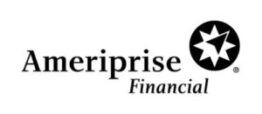
Hank Mark Werner, of New York, a stockbroker formerly registered with Legend Securities, Inc., has been permanently barred from associating with any Financial Industry Regulatory Authority (FINRA) member in any capacity according to an Office of Hearing Officers Extended Hearing Panel Decision containing findings that Werner made unsuitable investment recommendations to a customer and engaged in the fraudulent churning of the customer’s investment portfolio. Department of Enforcement v. Hank M. Werner, et al., Disciplinary Proceeding No. 2015048048801 (Nov. 6, 2017).
According to the Decision, from October of 2012 to December of 2016, during the time that Werner was associated with Liberty Partners Financial Services, LLC as well as Legend Securities, Inc., he engaged in the churning and excessive trading of customer DC’s three investment accounts, where his activities led DC to sustain at least $175,000.00 in investment losses. Evidently, customer DC – a blind woman with failing health conditions – was seventy-seven years old during the time that Werner started to churn her investment accounts. The Decision stated that DC’s husband, TC, who was also a blind individual, died a month prior to Werner’s scheme to defraud customer DC.
Particularly, DC and TC became customers of Werner in 1995, during which time Werner was associated with another brokerage firm. DC and TC reportedly moved their assets to each brokerage firm that Werner became affiliated with, up to and including Liberty Partners and Legend Securities. Evidently, between October of 2012 to November of 2012, during the time that Werner was associated with Liberty Partners, he churned DC’s individual retirement accounts. Subsequently, in February of 2013, Werner began to churn DC’s accounts when they had been moved to Legend Securities. Evidently, the churning persisted until December of 2015, at which time he became subject of a FINRA investigation into his trading activities.
Evidently, the active trading strategy that Werner executed, coupled with the commissions assessed to DC for trading, placed the customer in no position to generate positive investment returns. The Decision stated that from October of 2012 to December of 2015, seven hundred and sixteen trades had been effected in DC’s three investment accounts. DC was assessed commissions ranging from two percent to over four percent in forty-three of the forty-four trades Werner executed in her account. During the time that DC’s assets were at Legend, commissions also ranged from two percent to over four percent. Apparently, in fifty-four out of the fifty-six transactions he executed, more than three percent commissions had been charged to DC.
The Decision revealed that between October of 2012 and December of 2015, DC incurred ticket and service charges totaling $16,637.48 based on the recommendations that Werner made for DC’s first individual retirement account. Three hundred and fifty-seven transactions were placed in that individual retirement account, where commissions totaling $118,519.76 had been generated even though the customer sustained $85,072.01 in losses. The first individual retirement account had a 64.92 annual cost-to-equity ratio and 8.01 annual turnover rate.
Between October of 2012 and December of 2015, the customer’s ticket and service charges in the second individual retirement account totaled $14,551.77. Three-hundred and three transactions were reportedly executed by Werner in the customer’s second individual retirement account, generating commissions totaling $75,034.85 while the customer incurred $66,671.16 in losses. The second individual retirement account had a 97.73 annual cost-to-equity ratio and 12.13 annual turnover ratio.
The Decision further stated that between July of 2015 and December of 2015, fifty-six transactions were effected by Werner in the customer’s investment account, where commissions totaled $17,115.75 even though the customer incurred $23,650.44 in investment losses. In that account, there was a 141.09 annual cost-to-equity ratio and 18.05 annual turnover ratio.
FINRA’s Extended Hearing Panel concluded that Werner’s trading was excessive; conduct violative of FINRA Rules 2010 and 2111. Moreover, the Hearing Panel found that Werner had knowledge that his trading scheme was costing DC large sums of money, but continued to trade while charging her commissions that were not reasonable; $210,586.00 in commissions in total. FINRA’s Extended Hearing Panel concluded that Werner’s conduct in that regard was violative of FINRA Rules 2010, 2020, Securities and Exchange Act Section 10(b), and SEC Rule 10b-5.
Moreover, the Decision stated that Werner’s recommendation of DC switching from one annuity to another was not suitable. Evidently, Werner recommended that DC replace a Hartford variable annuity with a Nationwide variable annuity, which caused the customer to suffer from unnecessary fees and expenses as well as a new seven-year surrender period. Yet, there were no features contained within the Nationwide variable annuity that were more attractive than with the Hartford annuity; the customer was exposed to higher costs for less attractive benefits. The Decision stated that Werner failed to have any adequate basis to conclude that the annuity switch was suitable; his conduct was found by the Extended Hearing Panel to be violative of FINRA Rules 2010, 2330(b) and 2111.
Werner’s employment with Legend Securities, Inc. was terminated on March 9, 2016.
Guiliano Law Group
Our practice is limited to the representation of investors. We accept representation on a contingent fee basis, meaning there is no cost to you unless we make a recovery for you. There is never any charge for a consultation or an evaluation of your claim. For more information, contact us at (877) SEC-ATTY.
For more information concerning common claims against stockbrokers and investment professionals, please visit us at securitiesarbitrations.com
To learn more about FINRA Securities Arbitration, and the legal process, please visit us at securitiesarbitrations.com








